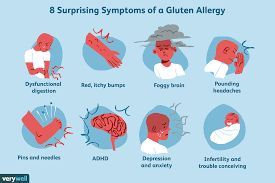Symptoms of Hyperthyroidism and Treatments for Children and Teens

Graves’ disease is an autoimmune disorder in which an overactive thyroid gland (hypothyroidism) results in an underactive thyroid. Thyroid disease is basically a condition in which the thyroid gland overproduces thyroid hormone, which causes the body to over-stimulate the body to produce other hormones such as glucose and insulin. Graves’ disease usually occurs during childhood, but it can develop in adults as well.
Graves’ disease is difficult to diagnose in children because it is not as common as hyperthyroidism in adults. It affects about five percent of children and more than 20 percent of women over the age of 20. There are many ways to diagnose Graves’ disease, but none are 100% effective. It is not known exactly how this autoimmune disease begins and why some people are more susceptible to it than others. Many doctors believe that overproduction of thyroid hormone can be due to a variety of factors, such as heredity, autoimmune response to antibiotics and radiation therapy, thyroiditis, hyperthyroidism, and chronic infection.
If you suspect your child has graves, your doctor will order blood tests to rule out thyroid cancer. Your doctor will then examine your thyroid gland under a microscope to see if there are any nodules, small accumulations of fluid, or abnormal overgrowth of thyroid tissue
in the gland. The doctor will do a physical exam to confirm this diagnosis and perform blood tests to determine if your child’s blood sugar is within the normal range. If these tests reveal abnormal levels of insulin, glucose, or both, it is recommended that your child be tested for hypoglycemia.
Doctors often treat children with Graves’ disease using natural methods such as nutritional supplements, diet, exercise, and medications that help balance their thyroid hormone levels so their thyroid glands can function properly. When they first show symptoms of hyperthyroidism, medications will be prescribed that can cause them to gain weight, depression, and fatigue. They are often prescribed synthetic drugs to fight hyperthyroidism, but these can cause side effects and ultimately lead to complications.

Many doctors choose to use hormone replacement therapy to control the thyroid gland in children and adolescents. This approach is less risky and much easier on the kidneys of the child. Hormone replacement therapy involves injecting a synthetic hormone into the thyroid gland in an attempt to correct the imbalance in thyroid hormones that causes hyperthyroidism. It is important to keep a close eye on your child during hormone replacement therapy so that a licensed health care provider can monitor him or her. If there is no improvement after a few months of hormone replacement therapy, the doctor will most likely recommend that your child have surgery to remove the gland or the thyroid itself.
It is important for your child to see a doctor regularly to monitor the progress of thyroid surgery. The doctor will do a special thyroid test called the Endocrine Hazard Test to determine the level of thyroid hormone in your child’s body. This test can tell the doctor if the gland is likely to rupture. If the thyroid gland does not rupture, or if a small portion of the gland has been removed, it can be removed.
Some of the most commonly prescribed natural treatments for Graves’ disease include dietary adjustments and supplements, acupuncture, herbs for hypothyroidism, and medications designed to reduce stress. If all else fails, your doctor may suggest surgery to remove the thyroid gland or remove it entirely.
There are many natural remedies for Graves’ disease, including herbs, vitamins, mineral supplements, acupuncture, herbal supplements, and other dietary treatments. In severe cases, surgery may be recommended.
